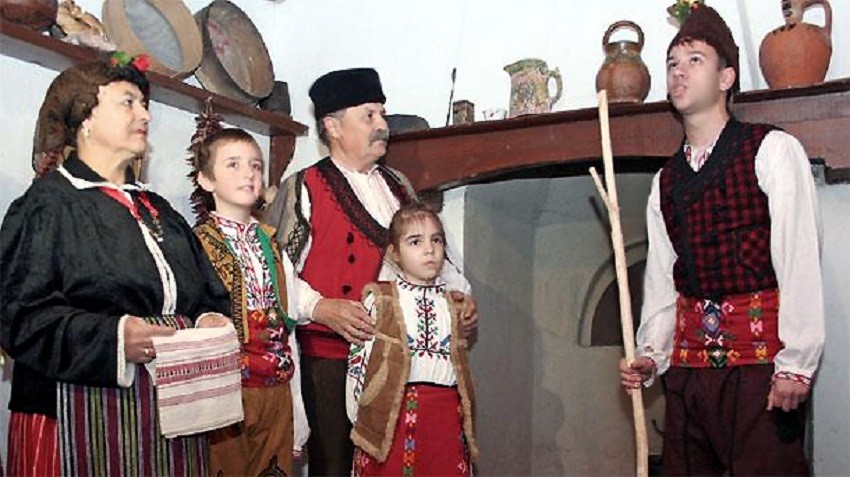People should not work on Ignazhden and it is not even good to leave home. Of course, most of us can't observe this folk tradition these days, but if we look at the other prohibitions involved in the observance of this feast in Bulgaria, they are completely feasible - no money should be lent, nothing should be taken out of the house, and when we go home or anywhere, we have to carry something in our hands. And it is even more important to have good thoughts and wishes in our souls.
According to Bulgarian folklore, Ignazhden is the day that marks the beginning of the New Year, hence the names New Year, Young Day, New Day.
On December 20, the Orthodox church commemorates the martyr Ignatius the God-Bearer, the child whom the Lord took in his arms, pointed it out to the apostles and said, "Unless you become like , you will never enter the kingdom of heaven."
With the incorporation of the pagan holiday to the religious feast the names Ignatovden or Ignazhden appeared. This is one of the most important days in the Bulgarian folk calendar when divinations and rituals are performed to attract good forces. The most common belief is related to the so-called “polaznik” - this is the first person to enter the home. He must be wealthy, his family good, healthy and lucky.
The birth pangs of the Mother of God began on St. Ignatius' Day. This is a common motif in Bulgarian folk songs. On this day for the first time the groups of the so-called “koledari” (carol singers) gather to choose their leader, the training of the young lads begins, who for the first time will take part in the ritual koledari tour of the village. They practise songs and chants performed on Christmas Eve.

"The Mother of God had her birth pangs from St. Ignatius’ Day to Christmas" is the song we chose for you. It tells how the Mother of God gave birth to the Young God on Christmas Eve. And she went out looking for a godfather. On the way she met St. Basil, but he refused to baptize him because St. John had baptized "earth and heaven", so he had to "baptize theYoung God".
Listen to the song performed by a male folklore group from the village of Telish, Pleven region.
Edited by Albena Bezovska
English version Rositsa Petkova
Photos: libraryThis year's edition of the Wagner Festival at the Sofia Opera will open on June 26 with the premiere of Wagner's opera Tannhäuser. An exceptionally beautiful, charming and talented young girl from North Macedonia named Eleonora Djodjoska-Mladenova..
"Bulgarian Classical Concerts – Los Angeles" is a new organization for the presentation and promotion of Bulgarian classical music in a global context . It was founded by the successful violinist Blagomira Lipari and the famous Bulgarian composer Penka..
Music producer Atanas Zaykov, known as Atazar (pronounced Atazar) is offering his fans his latest song "Pushka Pukna" . It features the singers Bisera and Lidiya, and once again sounds in the traditions of Bulgarian folklore. The folk instrument kaval..
Following a successful club tour earlier this year and an international run of nearly 30 shows, Bulgarian rock veterans B.T.R. are heading back on the..
After years spent on stage in Bulgaria and around the world, Zornitsa Petrova presents her first original song – "Leti" (Fly). In her words, the song..
Of all the works by Bulgarian composers, Pancho Vladigerov’s music is undoubtedly the most frequently performed on the Bulgarian and world stage. When..

+359 2 9336 661
